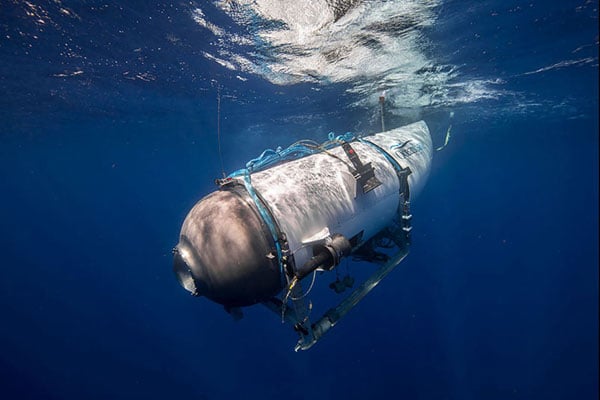France's 'Mr Titanic' hailed after sub implosion

Paul-Henri Nargeolet, director of a deep ocean research project dedicated to the Titanic, poses inside the new exhibition dedicated to the sunken ship, at 'Paris Expo', on May 31, 2013, in Paris.
A French submarine operator and daredevil deep-sea explorer dubbed "Mr Titanic", who died onboard a submersible visiting the wreck of the mythic ship, was hailed on Friday as having helped advance mankind's understanding of the "unknown world".
Paul-Henri Nargeolet, 77, was one of five people in the tourist submersible which was revealed on Thursday to have suffered a "catastrophic implosion".
The news brought an end to a search and rescue mission in the North Atlantic that had captured the world's attention.
Nargeolet, who was based in Connecticut, had previously gone on more than 30 dives to explore the Titanic, even bringing up some of the first objects recovered from the wreck after its discovery in 1985.
The tight-knit community of French deep-sea explorers were quick to express their grief.
Bernard Cauvin, head of the Cite de la Mer maritime museum in Cherbourg, western France, said it was "a sad, sad, sad end for a giant of the deep".
British billionaire Hamish Harding, OceanGate Expeditions CEO Stockton Rush, French submarine operator Paul-Henri Nargeolet, Pakistani tycoon Shahzada Dawood and Dawood's son Suleman are on board a missing submersible near the wreck of the Titanic which is at the heart of a rescue mission by the US Coast Guard. 22/6/23
Nargeolet "helped humanity understand this unknown world" of the deep sea and had "captivated everyone with his restraint, delicacy and humility," Cauvin added.
Before the sub's fate was revealed on Thursday, Nargeolet's daughter Sidonie told French broadcaster BFMTV that she hoped for a positive outcome.
Happy where he is
"But in any case, he is happy where he is. And that is reassuring," she said.
Cauvin said he shared this feeling: "He is happy where he is."
Nargeolet had been expected to attend the opening of a new exhibition in Paris devoted to the Titanic on July 6.
"We salute the passion and courage of this extraordinary explorer and thank him for the dreams and emotions he has given us," the exhibition's organiser Pascal Bernardin said in a statement.
After the discovery of the wreck in 1985, the Titanic became the focus of the second half of Nargeolet's life following his retirement from a 25-year career in the French Navy.
Nargeolet has previously spoken openly about the risks of his exploits in the most inaccessible waters of the world's oceans, often thousands of metres (feet) below sea level.
"When you're in very deep water, you're dead before you realise that something is happening, so it's just not a problem," he told the Irish Examiner newspaper in 2019.





